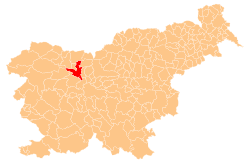법학 강의
Lectures on Jurisprudence법학, 경찰, 세입, 군무에 관한 강의라고도 불리는 법학 강의는 아담 스미스의 강의의 모음집이며, 그의 초기 강의에서 얻은 메모들로 구성되어 있다. 그것은 "국부" 뒤에 숨겨진 조형적 생각을 담고 있다.[1][2]
배경
1976년 아담 스미스의 작품과 서신의 글래스고 에디션의 일부로 출판되었다. 1760년대 스미스의 강연에서 분명히 따온 두 세트의 강의 노트와 '국부론'의 '얼리 초안'으로 구성되어 있다. 같은 내용이 '국부의 일부분 초안'과 '정의, 경찰, 세입, 군무에 관한 강연'으로도 등장했었다.
요약
1762–1763년에 글래스고 대학에서 처음 전달된 스미스의 법학 강의는 그의 '민간 정부가 지향해야 할 규칙의 이론'을 제시한다. 스미스에 따르면, 정부의 주요 목적은 정의를 지키는 것이다; 그리고 '정의의 목적은 부상으로부터의 안전'이다. 국가는 개인에 대한 개인의 권리, 재산, 평판, 사회적 관계를 보호해야 한다. 스미스는 특히 법학이라는 용어를 "법과 정부의 일반 원칙 이론"으로 정의하고 있다. 그것은 또한 한 국가의 법의 본질에 대한 일반적인 지침으로 정의된다. 스미스는 특히 법학이라는 용어를 "법과 정부의 일반 원칙 이론"으로 정의하고 있다. 그것은 또한 한 국가의 법의 본질에 대한 일반적인 지침으로 정의된다.[3]
이 구간은 확장이 필요하다. 추가하면 도움이 된다. (2014년 11월) |
1부: Of Justice
- 제1부. Of Public Juristprudence.
- 제2사단. 국내법
- 제3사단. 사법
Part II: Of Police
The pros and cons of money, prices, and financial exchanges fall under this section of the Lectures "since the regulation of prices and the creation of money by the state both came under the head of police."[4]
- Division I. Cleanliness and Security
- Division II. Cheapness or Plenty[5]
Part III: Of Revenue
Part IV: Of Arms
Part V: Of the Laws of Nations
Scholarly critique
According to William Caldwell, the lectures accomplish three goals: they detail Smith's philosophy and beliefs about economics, his motivation to write about the historical origins of political societies, and they show the influence of mercantilism and Francis Hutcheson on Smith's thoughts on the political economy.[4] In an article for Political Science Quarterly, W. Hasbach opines that Smith believed that the political economy is the foundation for morality, law, government, wealth, revenue, and arms, a position that originated from the idea of natural law.[3] He also notes that Smith's relationship with the Physiocrats is important in the Lectures and that some critics stated that he produced the same concepts as them on economics.[3] Hasbach also states that Smith expands on their ideas by saying that there needs to be a freedom of industry. Smith expects that industry and also commerce be laisser-faire and relevant to all aspects of political economics.[3] Another scholar, C. F. Bastable, notes that Smith recognizes the need for industry for the production of wealth. Industry creates capital which is much needed in an economically viable society.[6]
Hasbatch has also written that the Lectures offer a perspective of Smith's view on property that is different from that of John Locke. Smith believes that property does not lie within the individual but rather it ought to be shared within society. "The individual and his labor are in no respect the ultimate source of the right of property in land: the origin of this right is in society."[3] Also, according to Hasbatch, Smith rejects a state of nature and the doctrine on an original contract, two ideas supported by Locke.[3]
메모들
- ^ Smith, Adam (1976), Meek, Ronald L.; Raphael, David D.; Stein G. Peter (eds.), Lectures on Jurisprudence (1 ed.), Oxford: Oxford University Press
- ^ 참고 항목
- ^ a b c d e f Hasbach, W. (1897). "Adam Smith's Lectures on Justice, Police, Revenue and Arms". Political Science Quarterly. 12 (4): 684–698. doi:10.2307/2139691. JSTOR 2139691.
- ^ a b Caldwell, William (March 1897). "Lectures on Justice, Police, Revenue, and Arms, Delivered in the University of Glasgow. Edwin Cannan , Adam Smith". Journal of Political Economy. 5 (2): 250–258. doi:10.1086/250422. ISSN 0022-3808.
- ^ 이 부분은 "국부"의 시작을 일으켰다.
- ^ BASTABLE, C. F. (1898). "ADAM SMITH'S LECTURES ON "JURISPRUDENCE"". Hermathena. 10 (24): 200–211. JSTOR 23036559.


